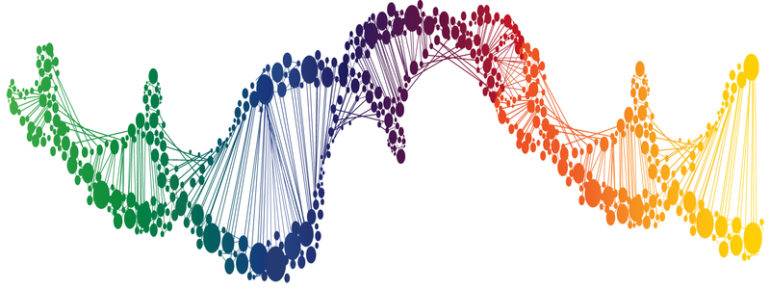
SynBio@UVA
We are a community of more than 100 faculty from among seven schools at the University of Virginia (Arts & Sciences, Engineering & Applied Sciences, Medicine, Law, Leadership & Public Policy, Architecture, and Commerce) with research interests in or related to Synthetic Biology. Our goal is to deliver Better Health, Better Security, and Better Products through our research, in a socially and ethically responsible manner, while training and mentoring the next generation of innovators, specialists, and scholars. SynBio@UVA also collaborates with the private sector, community partners, and other academic institutions in Virginia and neighboring states to leverage resources and expertise. These collaborations accelerate research discoveries, enhance workforce development, and engage local communities in STEM education and awareness. We are visioning and creating paths to the 22nd century!
WHAT IS SYNTHETIC BIOLOGY?
Synthetic Biology (SynBio) is the application of natural sciences and engineering to facilitate the design, modification, and production of living organisms to make implementable solutions to global problems. SynBio asks the question: "How can I get a cell to work for me?"
In addition to attacking global hunger and disease, SynBio is solving environmental problems as well as obstacles in manufacturing, architecture, information processing, healthcare, and defense. Famous end product examples include, but are not limited to, baker’s yeast that produces an anti-malarial drug; pig cells that can serve as the building blocks for synthetic organs; algae that can produce oils for food and fuels; bacteria that can heal broken concrete, remediate pesticides from the environment, carry out digital computation, or check the freshness of natural products before market.
What sets SynBio apart from historic technologies such as genetic engineering is the breadth and complexity of application. By conceptualizing living organisms as devices to be sculpted through molecular design, SynBio seeks to use cells, and molecules within cells, as the new material of the 21st century. Thus, living organisms and their constituent cells will serve not just as carefully designed foundries for the production of economically significant molecules, but will in themselves function as devices that sense the environment and respond dynamically to post an alert, make physical repairs, produce an aesthetic, provide protection, encode data, remediate the environment, or modulate our living and working spaces for maximum health, comfort, and productivity. As with most devices tailored to specific tasks, there is complexity of design. The challenge of design, therefore, forces the infusion of the principles and approaches of engineering into the biological sciences. Because SynBio envisions a world in which living devices are deployed in spaces where we live, work, play, grow food, etc. - places far different than the controlled confines of a laboratory or a manufacturing plant - the development of any SynBio device will require a concomitant consideration of law, ethics, and policy.
